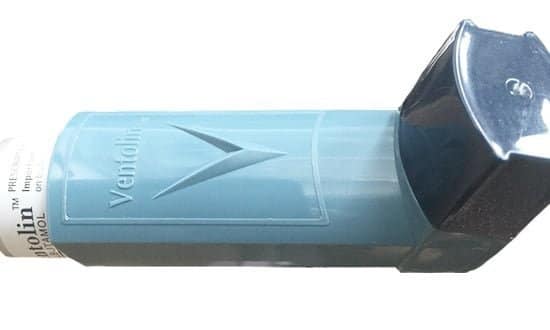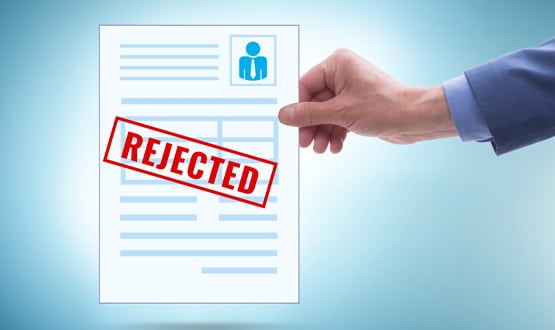Joe’s view: of online GPs flying EasyJet
- 13 May 2015

I was born in 1961. In 1963, I got bronchiolitis – a common but serious inflammatory condition of the lungs which, like many sufferers of bronchiolitis, subsequently left me with intermittent asthma.
In the early sixties, the treatment of asthma was with a synthetic adrenaline called isoprenaline, but when it came to market there was a rise in deaths from asthma.
This meant GPs became reluctant to prescribe it, so I was frequently left to suffer my asthma attacks with little medical assistance.
I vividly remember fighting for every breath some nights, desperately trying not to panic. This only made matters worse, as I would overinflate my lungs and then be unable to breathe out again.
The result was a feeling that I was about to burst. My mother would do her best with inhalations of steam and eucalyptus oil which , I swear, made things even worse – but at least made her feel like she was doing something.
A three year revolution
Fortunately, in the same year that I acquired my condition,1963, a Scottish pharmacologist, the late Sir David Jack, head of research at Allen and Hanbury (now GlaxoSmithKline) decided that a new treatment for asthma was urgently required.
The company had produced a new compound, salbutalmol. David Jack took the first ever dose of salbutamol in the great tradition of medical researchers turned guinea pig.
The second dose was taken by his medical director. The new drug proved safe and effective and Jack’s courage brought it to market in only three years.
I remember my first dose of salbutamol like it was yesterday. I was nine. The doctor came to the house because I was too breathless to walk. I was settling in for a long night at the exhausting job of breathing.
The doctor listened to my chest and gave me a tiny pink pill. Fifteen minutes later I was well. Subsequently, the drug became available in an inhaler and this transformed my life.
I could run, I could play football and rugby. I could have a normal life. The later introduction of inhaled steroids meant I have never had another bad asthma attack.
Like millions of others I have naturally become quite attached to my little plastic inhaler – to the point where I literally don’t leave home without it, even though I rarely need it.
No friend? Time to go online
Two weeks ago, as the stupid o’clock from Newcastle to Kings Cross was pulling out of the station, I chanted my travelling mantra: “Keys, wallet, tickets, inhaler, while patting my various pockets. I realised that I had forgotten my little plastic friend. Heart-sink.
I checked the weather forecast for London. It was to be the hottest day of the year so far, 25 degrees. Hot, polluted London air is probably the thing I dread most nowadays as it is the most likely trigger for my asthma.
I also had a speaking engagement at the British Computer Society, wearing my new hat as a director of the Open Source Software Foundation Community Interest Company.
What to do? Get off at Durham and go home for my inhaler? No time. Just risk it? What if I’m too wheezy to speak? Write myself a prescription? Too Harold Shipman.
Then I remembered DrThom, the online general practice service. Google took me straight to their website. I registered with the service and set up my personal health record, following the straightforward instructions.
I entered all the personal data requested and details of my medical history as required. I clicked on the ‘request a prescription’ button and selected my beloved little blue friend.
Now here’s the interesting bit. The computer then took me through what looked like an asthma risk assessment algorithm.
I wish I’d recorded the encounter, but it asked me questions about my asthma – like how many inhalers I get through in a year, how often I’d used those inhalers, and if my asthma had ever put me in hospital.
Then it asked me to nominate a pharmacy, anywhere I liked, so long as it was a Lloyds (not unexpectedly, as LloydsPharmacy runs the service). I entered my credit card details to pay any bill that would come.
Once I’d finished giving this information, the site told me that I’d get a text message once a GMC registered doctor had looked at my request (name and number supplied) telling me what to do next.
The EasyJet model in action
Within the hour, I received a text message telling me to log back in to my online patient record, where I had a message from the doctor saying my prescription was ready to be collected from the central London pharmacy I had nominated.
I got off the train, walked to the pharmacy and collected my inhalers. Normally, I pay a prescription charge of £8.20 per item, so the two inhalers would have cost me £16.40. The price of the service from DrThom? A staggeringly cheap £24.99 (including the inhalers).
The private medical consultation, the setting up of my record, the administration, the sending of the prescription to a pharmacy in London effectively left me just £8.59 out of pocket.
What’s more, DrThom sent me a lot of interesting information and links to websites about asthma. My head was spinning; how could they make money offering such a brilliant service at such a tiny cost?
Then it dawned on me. This is medicine as practiced by EasyJet. I, the customer, had done all the work.
All the doctor had to do was make the decision to issue the prescription – or not – based the information I had supplied in the section on my asthma. The expensive bit of the system, the doctor, had virtually nothing to do. Hence the price.
Furthermore, I felt that the service had treated me like a grown-up. I wondered if, in fact, the doctor could be taken out of the process altogether for those whom the computer puts in the lowest risk category.
A paradigm shift for healthcare? Automated self-care for grown ups who want to be treated like grown-ups?
EasyNHS? Not easy…
The question is: could this EasyJet approach be taken by the NHS for digitally enabled patients? I think not.
The NHS culture is naturally risk averse because of its political position. It finds it hard to innovate because getting up the greasy NHS management pole favours the “safe pair of hands” who doesn’t mess up over the brilliant innovator.
EasyJet also had the advantage, like DrThom, of being a blank page at the outset without powerful vested interests or cultural baggage.
Maybe we need a separate, brand new but nationally owned community interest company to start delivering automated self care for grown ups.
EasyNHS? One thing is for sure, regardless of the election result, we can’t carry on as we are. We need the digitally enabled patient to lighten the load of the digitally enabled clinicians.




